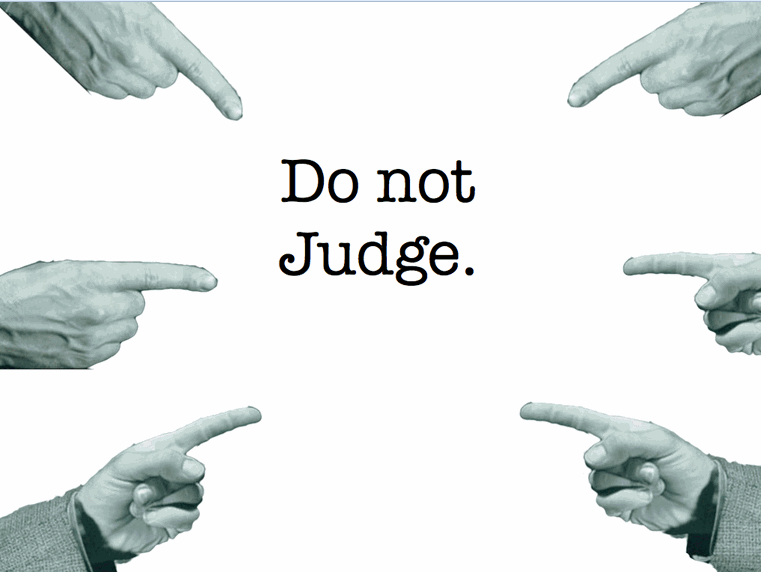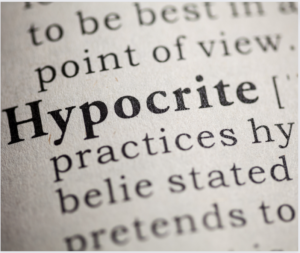Does The Bible really tell us that we shouldn’t judge people? Well, yes and no. There are different definitions of judging and I think people can easily get confused when they read passages in scripture about judging. Let’s take a look at scripture and see what it says about judging.
DID JESUS SAY NOT TO JUDGE PEOPLE?
When a Christian usually states a belief about an action or lifestyle that he considers to be immoral, some non-Christian or even a fellow Christian will come along and reprimand him, telling him that he shouldn’t be judging people. He then quotes from Matthew 7, and he or she will quote Jesus as saying “Do not judge lest you be judged” (Matthew 7:1). Jesus did indeed say this, but what the person usually thinks Jesus means is that we shouldn’t make any discernment whatsoever about the moral status of the action in question. Not only is this not what Jesus meant, but saying “Do Not Judge” by this definition is actually logically self defeating. For we can then ask the person “Why are you judging me for judging?” It’s as self refuting as the person who says “I can’t speak a word in English” or “My parents had no kids that lived” or “My brother is an only child”. To say that “Don’t judge” by that definition is practically like saying “It’s wrong to tell me I’m doing wrong.” Certainly Jesus, being God, wouldn’t be so foolish as to make a logically contradictory statement, would He? No. Certainly not. Well, what did Jesus mean? In order to know that, you’d have to look at the passage in context.
“Do not judge, or you too will be judged. For in the same way you judge others, you will be judged, and with the measure you use, it will be measured to you.” – Matthew 7:1-2
After Jesus said “Do not judge or you will be judge” He said that He would judge us by the exact same standard that we judge other people. The measure we use will be measured to us. So, if you want God to be kind and compassionate towards you when you make mistakes, you should show that same kind of kindness and compassion towards others who make mistakes. I think this is kind of in the same category with what Jesus said about God being merciful towards those who are merciful and God forgiving those who forgive others. Forgive and you’ll be forgiven. Be merciful and you’ll be shown mercy.
“Why do you look at the speck of sawdust in your brother’s eye and pay no attention to the plank in your own eye? How can you say to your brother, ‘Let me take the speck out of your eye,’ when all the time there is a plank in your own eye? You hypocrite, first take the plank out of your own eye, and then you will see clearly to remove the speck from your brother’s eye.” – Matthew 7:3-5
Here, Jesus says that we shouldn’t judge hypocritically. If we struggle with a certain sin in our life, we cannot even give helpful council to that person who is struggling with that same sin. Alcoholics cannot help out alcoholics, adulterers cannot help other adulterers, and so forth. Once we get that problem out of our lives then we can go on to help our brother. Once we remove the plank from our own eye, then it will be appropriate to help our brother get the speck out of his eye. The blind cannot lead the blind.
So Jesus is not saying not to make moral discernment and/or give a helpful rebuke, He’s making a prohibition against judging hypocritically. What Jesus was condemning here was hypocritical, self-righteous judgments of others.
But, if you do not struggle with that sin, it is your duty as a Christian to help your brother out. Jesus said in Matthew 18:15-17 “If your brother sins against you, go and tell him his fault, between you and him alone. If he listens to you, you have gained your brother. But if he does not listen, take one or two others along with you, that every charge may be established by the evidence of two or three witnesses. If he refuses to listen to them, qo tell it to the church. And if he refuses to listen even to the church, let him be to you as a Gentile and a tax collector.” And Proverbs 27:17 says “As iron sharpens iron, so a friend sharpens a friend.”
This is not judging, but rather pointing out the truth in hope—and with the ultimate goal—of bringing repentance in the other person (James 5:20) and restoration to the fellowship. We are to speak the truth in love (Ephesians 4:15). We are to proclaim what God’s Word says about sin. 2 Timothy 4:2 instructs us, “Preach the Word; be prepared in season and out of season; correct, rebuke and encourage — with great patience and careful instruction.”
A PROHIBITION AGAINST A CERTAIN KIND OF JUDGING
Remember that I said above that “judging” can have different definitions? One is discernment, another is condemnation. Certainly we’re not prohibited from making moral discernment (it’d be self defeating to say that we were) and we’re commanded to point out sin in the life of someone in hopes of bringing that person to repentance but only if we ourselves do not struggle with that same sin. But judging can have other definitions. We are not judge others in the sense of condemning them. We are not to judge people in the sense of thinking ourselves are more righteous or holy than they are (this is one of the big problems Jesus had with the Pharisees) and we are not to make judgments on what’s in a person’s heart because only God knows what’s in a person’s heart (1 Samuel 16:7, Deuteronomy 31:21, Psalm 44:21, Psalm 139:2, Proverbs 15:11).
So, how should we judge?
1: Making moral discernment? YES
2: Condemnation? NO (“Let he who is without sin cast the first stone” – John 8:7)
3: Pointing out a moral flaw in someone when you share that same moral flaw? NO
4: Making a conclusion about what’s in a person’s heart? NO
Discover more from Cerebral Faith
Subscribe to get the latest posts sent to your email.




